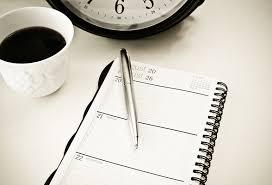Figure out your purpose
Ask yourself why are you reading:
- What am I trying to remember?
- How am I going to use this information? (e.g. on a test, cited in an essay, etc.)
- What do I plan to do with the notes later? Will you be studying off of them extensively? Or maybe you’re just taking notes to stay focused, and it’s highly unlikely you’ll look through them after?
5.07K
18.4K reads
CURATED FROM
IDEAS CURATED BY
The idea is part of this collection:
Learn more about problemsolving with this collection
Effective note-taking techniques
Test-taking strategies
How to create a study schedule
Related collections
Similar ideas to Figure out your purpose
Writing helps your memory
When you take notes, you need to filter external information, summarize it in your head, and then write it down.
Your brain decides which pieces of information to hang onto for later, partly as a result of how much work you do to them upfront–so the more you mentally manipulate a pie...
Plan Your Days Meticulously
When you plan your days, you know what you have to do:
- Look at your goals (if you don’t have goals, consider making a list)
- Think about what daily activities you have to do to achieve them
- Schedule those activities on your calendar
- Also schedule time for ...
Create Your Master Plan
Once you have a plan in place for actually getting to a workout, make a plan for what you will do and when.
- Having a set program to follow.
- Set specific times to work out. If you vaguely know you have to get 3 workouts in this week, it’s easy to push them back to late...
Read & Learn
20x Faster
without
deepstash
with
deepstash
with
deepstash
Personalized microlearning
—
100+ Learning Journeys
—
Access to 200,000+ ideas
—
Access to the mobile app
—
Unlimited idea saving
—
—
Unlimited history
—
—
Unlimited listening to ideas
—
—
Downloading & offline access
—
—
Supercharge your mind with one idea per day
Enter your email and spend 1 minute every day to learn something new.
I agree to receive email updates

